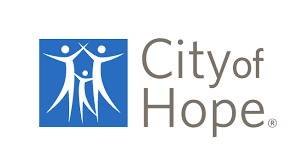- About Us
- Advertise / Support
- Editorial Board
- Contact Us
- CancerNetwork.com
- TargetedOnc.com
- OncLive.com
- OncNursingNews.com
- Terms & Conditions
- Privacy
- Do Not Sell My Information
- Washington My Health My Data
© 2025 MJH Life Sciences™ and CURE - Oncology & Cancer News for Patients & Caregivers. All rights reserved.
3-Drug Regimen May Be Underutilized in Metastatic CRC

Brielle Benyon, Assistant Managing Editor for CURE®, has been with MJH Life Sciences since 2016. She has served as an editor on both CURE and its sister publication, Oncology Nursing News. Brielle is a graduate from The College of New Jersey. Outside of work, she enjoys spending time with family and friends, CrossFit and wishing she had the grace and confidence of her toddler-aged daughter.
The use of FOLFOXIRI for metastatic colorectal cancer was lower than one what expert was expecting.
The use of FOLFOXIRI (a chemotherapy triplet), with or without Avastin (bevacizumab) to treat metastatic colorectal cancer has been increasing in recent years, particularly in younger patients below the age of 50, according to recent research presented at the 2024 Gastrointestinal Cancers Symposium.
However, the use of the regimen is still surprisingly low, explained study author, Dr. Afsaneh Barzi, a medical oncologist at City of Hope said in an interview at the conference.
“I am actually surprised that the use of this triplet regimen, even in the younger patient is less than what I was expecting. So my hypothesis is that many people are maybe worried about side effects,” she said.
Transcript
This study cannot answer what factors prompt the provider to use a more aggressive triplet regimen versus a doublet regimen, I would have to tell you that I am actually surprised that the use of this triplet regimen, even in the younger patients, is less than what I was expecting. So my hypothesis is that many people are maybe worried about side effects and maybe not using it (when it) potentially could be used.
Again, I want to emphasize the use of double is not wrong. But if you have younger patients and (are) expecting better outcomes, then you want and have the opportunity to be more aggressive. And so, you know, what we identified is if you look at the entire patient population, we identified close to 25,000 patients in this time window of 10 years. About 650 of them were getting FOLFOXIRI — that's less than 3% of the population. So a very small population.
Granted, the use of this triplet therapy over time is increasing, so in more recent years, there are more used as opposed to the beginning period of this study. That may be because we are seeing more data there are other studies presented (that) come with this triplet combination. But that's what we observed. We also observed that the triplet regimen is used more commonly in younger patients. Instead, it is in older patients, which went along with our hypothesis, that maybe younger patients are treated more aggressively. But still, the percentages for the use of these triplets were lower than what I was hoping or expecting, I should say.
This transcript was edited for clarity and conciseness.
For more news on cancer updates, research and education, don’t forget to subscribe to CURE®’s newsletters here.
Related Content:




